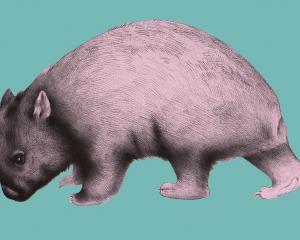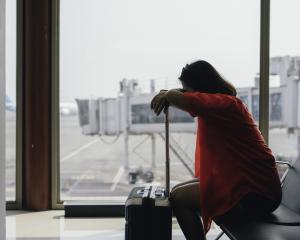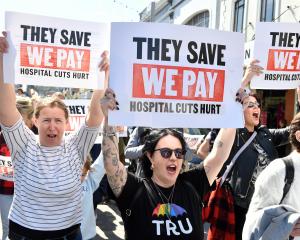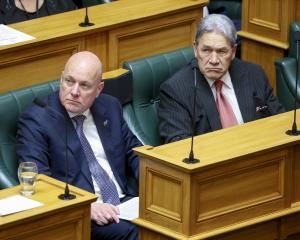

It has spared me watching the first three parts of Harry and Meghan, breathlessly described by Netflix as an "unprecedented six-part documentary series", exploring the span of their relationship, from the early days of their courtship to the challenges and controversies that led them to feel "forced" to step back from their royal roles.
I would have hated my prurient self for watching it, but I would have found it irresistible.
Not watching it means I do not have to form a view on it. Would I have been in the camp which thought it was vomit-inducing bilge from a pair of deluded privileged poseurs or the one which sees this poor couple as terribly wronged and deserving of our sympathy all the way to deposit their millions of Netflix dollars in the bank? Probably neither.
It would likely just have reinforced my view that Harry is still an angry, sad little boy, brought up in the royal privileged but dysfunctional way, a recipe for a screwed-up adult, not helped by the early death of his mother. (I am unsure what to make of Meghan, but then I have been called out recently for thinly veiled narcissism.)
Harry wants us to believe the paparazzi killed Diana. I understand that. I know what it is like to want to blame someone for your mother’s death.
For years I bore a grudge against the doctor who had been treating my mother when she died of asthma when I was 4. I came to my senses decades later when my brother, getting treatment for an allergy, found how her death had always troubled that doctor, with him constantly wondering whether he could have done something differently.
Harry, despite presumably access to the best mental health help, seems stuck and does not seem to have had his thinking challenged. Yes, his mother was mercilessly hounded by the paparazzi, and this continued after her break-up with Charles. But on the night she died, while she was being chased by the paparazzi, can we ignore the fact she got into a car with a drunk driver, and she did not wear a seatbelt? It’s always baffled me nobody considered this tragedy could have been used for good in campaigns about seatbelt wearing and the perils of drink driving.
Having convinced himself the paparazzi killed his mother, it is understandable Harry wanted to protect his wife from the same fate.
After they stepped back from royal commitments, it might have been expected the couple would try to shun the spotlight and forge a new path doing something worthy behind the scenes. That has not been the way they have chosen. As I understand it, they say their departure from royal duties was not to do with wanting privacy but wanting more control over their lives and what they shared publicly.
Maybe the series will show exercising that control to over-share proves to be just as polarising as anything the tabloids and the paparazzi could throw up.
While I haven’t been watching Netflix, I’ve had time to catch up with John Campbell’s two-part 1News series online Tough Love.
In the first part he visits an Oranga Tamariki youth justice residence and talks to two teenage girl ram-raiders there.
It’s heart-breaking. As he says, it’s difficult for many of us to understand the extent to which violence has been part of their young lives and how much damage this has done.
"Their childhood authority figures have often been capricious, punitive and vicious. ‘Authority’ has been drunk, stoned, or both. ‘Authority’ has been their mum’s new partner, who doesn’t want stepchildren. ‘Authority’ has been a mum who prioritised a violent partner over them.
"Those of us who argue tough love is a solution to their criminality may be underestimating the extent to which they’ve had the ‘tough’ already. It’s the love they’ve been so desperately short of."
On the question of boot camps, a staff member tells John, "their lives have been a boot camp. A kick in the arse would be a good day".
In the second part of the series, he looks at the work being done by a group in Manuwera, Kotahi te Whakaaro where eight groups, involving various government agencies and local organisations, meet to review suspected youth crimes in their area and then develop individual approaches to deal with them, targeting children under 14. It’s not easy, and it’s labour intensive. But it shows what good people working together in a community can achieve to reduce offending.
This low-budget offering has to be more relevant and important here than anything the blockbuster Harry and Meghan series is likely to offer. And, it’s free to air.
- Elspeth McLean is a Dunedin writer.












